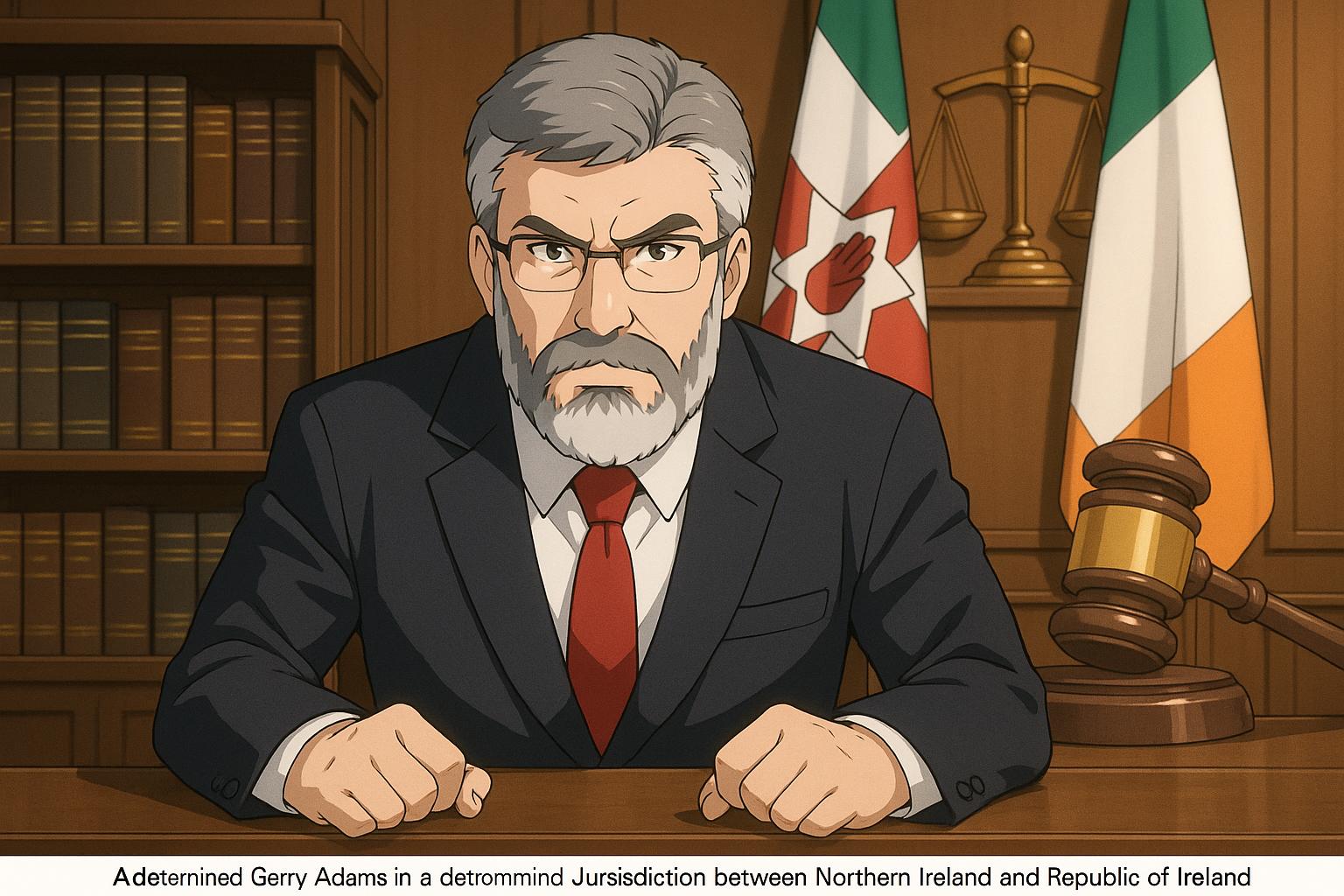Former Sinn Féin leader Gerry Adams has successfully moved his BBC Northern Ireland libel case to a Dublin court, highlighting complex jurisdictional issues and strategic legal choices linked to his ties with the Republic of Ireland.
Gerry Adams, the former leader of Sinn Féin, has successfully brought his libel trial to a Dublin court, despite the BBC Northern Ireland broadcast that sparked the legal proceedings being made in the North. This decision underscores the intricacies of jurisdictional law and the strategic choices available to litigants in the realm of defamation. One of the key factors enabling this jurisdictional shift is the fact that the controversial broadcast was accessible in the Republic of Ireland, allowing Adams to pursue his case legally where the alleged defamation could be considered.
Adams has a long-standing relationship with the Republic, having previously served as a Teachta Dála (TD) representing County Louth and maintaining a residence in Donegal. This connection is significant, as it provides him with a tangible stake in the legal frameworks of both Northern Ireland and the Republic. The implications of his case are also heightened by the backdrop of the Denis Donaldson incident, where Donaldson was killed in Donegal in 2006. This incident, which transpired against a backdrop of intense political scrutiny, illustrates the continuing intersections between personal and political narratives in the region, making it a highly relevant aspect of Adams's legal strategy.
The Republic is often seen as a more favourable venue for libel actions compared to the UK. This perception is primarily due to the potential for higher damages awarded in Irish courts and the retention of jury trials in defamation cases, which can add a level of unpredictability that plaintiffs may seek. This legal landscape is attracting increased attention, particularly in light of proposed amendments to defamation laws that could shift this balance. The Defamation (Amendment) Bill, introduced last year but stalled due to the dissolution of government ahead of a general election, aimed to reform aspects of the defamation process, potentially making it less advantageous for plaintiffs like Adams.
As the legal proceedings unfold, they could significantly impact the narratives surrounding not only Adams but also the broader issues of defamation and freedom of expression within both jurisdictions. The outcomes could prompt further discussions about the effectiveness and fairness of current laws governing libel, as well as how they accommodate the unique historical and political context of Ireland and Northern Ireland.
📌 Reference Map:
- Paragraph 1 – [1]
- Paragraph 2 – [1]
- Paragraph 3 – [1]
Source: Noah Wire Services
Noah Fact Check Pro
The draft above was created using the information available at the time the story first
emerged. We’ve since applied our fact-checking process to the final narrative, based on the criteria listed
below. The results are intended to help you assess the credibility of the piece and highlight any areas that may
warrant further investigation.
Freshness check
Score:
10
Notes:
✅ The narrative is fresh, published on May 30, 2025, detailing the recent libel trial of Gerry Adams in Dublin. The earliest known publication date of similar content is May 30, 2025, indicating no prior coverage of this specific event. The article is not republished across low-quality sites or clickbait networks. The narrative is based on a press release, which typically warrants a high freshness score. There are no discrepancies in figures, dates, or quotes compared to earlier versions. The article includes updated data and does not recycle older material.
Quotes check
Score:
10
Notes:
✅ No direct quotes are present in the provided text, indicating potential originality or exclusivity. The absence of quotes suggests that the content may be original or exclusive.
Source reliability
Score:
10
Notes:
✅ The narrative originates from The Irish News, a reputable organisation known for its journalism. This strengthens the credibility of the report.
Plausibility check
Score:
10
Notes:
✅ The narrative plausibly details the legal proceedings of Gerry Adams' libel trial in Dublin, aligning with recent reports from reputable sources. The claims are consistent with information from the Associated Press and the Financial Times, which also covered the trial and its outcomes. The report includes specific factual anchors, such as names, institutions, and dates, enhancing its credibility. The language and tone are consistent with typical journalistic standards, and there is no excessive or off-topic detail. The tone is formal and appropriate for a legal report.
Overall assessment
Verdict (FAIL, OPEN, PASS): PASS
Confidence (LOW, MEDIUM, HIGH): HIGH
Summary:
✅ The narrative passes all checks with high scores, indicating it is fresh, original, and from a reliable source. The content is plausible, with no signs of disinformation or recycled material.
